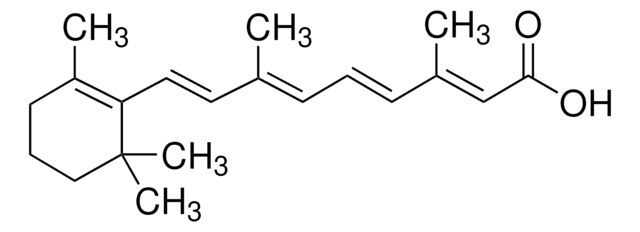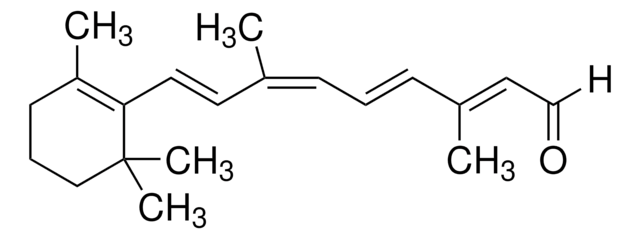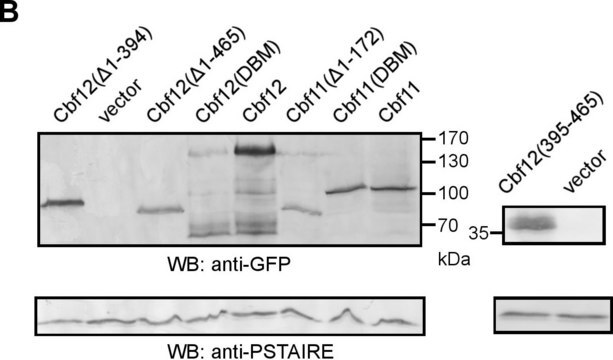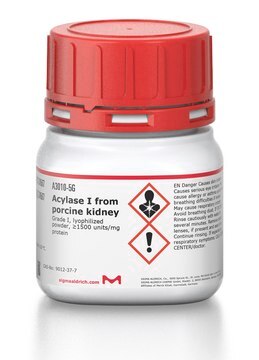R2500
all trans-Retinal
powder, ≥98%
Synonym(s):
Vitamin A aldehyde
About This Item
Recommended Products
biological source
synthetic (organic)
Quality Level
assay
≥98%
form
powder
technique(s)
HPLC: suitable
color
yellow
mp
62-64 °C
shipped in
dry ice
storage temp.
−20°C
SMILES string
[H]C(=O)\C=C(C)\C=C\C=C(C)\C=C\C1=C(C)CCCC1(C)C
InChI
1S/C20H28O/c1-16(8-6-9-17(2)13-15-21)11-12-19-18(3)10-7-14-20(19,4)5/h6,8-9,11-13,15H,7,10,14H2,1-5H3/b9-6+,12-11+,16-8+,17-13+
InChI key
NCYCYZXNIZJOKI-OVSJKPMPSA-N
Looking for similar products? Visit Product Comparison Guide
Related Categories
General description
Application
- in optogenetic experiments
- in electrophysiological experiment
- to study the effect of AKR1B10 (aldo-keto reductase (AKR) superfamily member) on the conversion of retinal to retinol in the airway epithelium
- in decidual transformation of human endometrial stromal cells
Biochem/physiol Actions
Packaging
Certificates of Analysis (COA)
Search for Certificates of Analysis (COA) by entering the products Lot/Batch Number. Lot and Batch Numbers can be found on a product’s label following the words ‘Lot’ or ‘Batch’.
Already Own This Product?
Find documentation for the products that you have recently purchased in the Document Library.
Customers Also Viewed
Articles
All-trans retinoic acid (RA, ATRA) is a pleiotropic activation factor that regulates genes associated with normal vertebrate cellular processes such as cell differentiation, cell proliferation, apoptosis, and embryonic development.
All-trans retinoic acid (RA, ATRA) is a pleiotropic activation factor that regulates genes associated with normal vertebrate cellular processes such as cell differentiation, cell proliferation, apoptosis, and embryonic development.
Our team of scientists has experience in all areas of research including Life Science, Material Science, Chemical Synthesis, Chromatography, Analytical and many others.
Contact Technical Service





